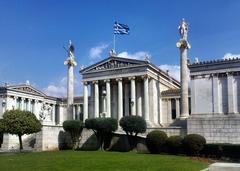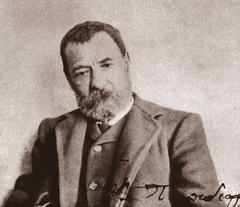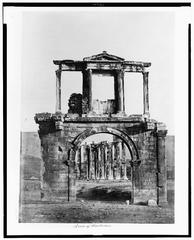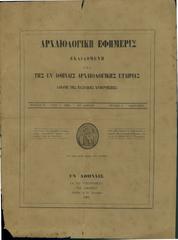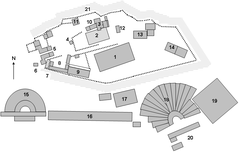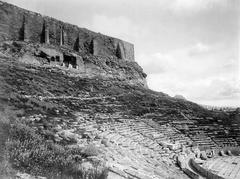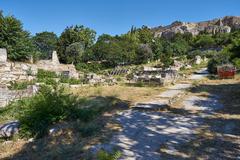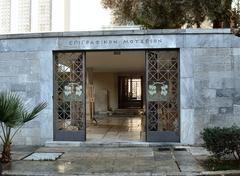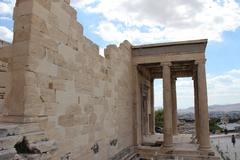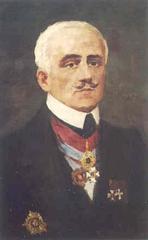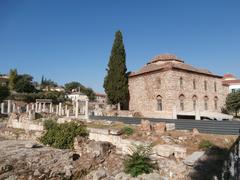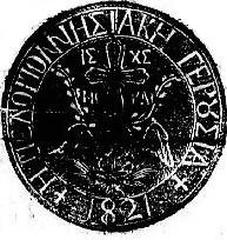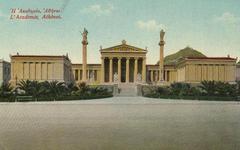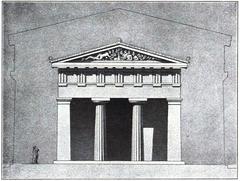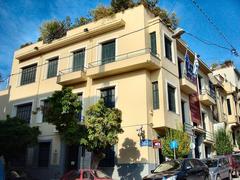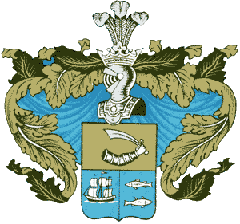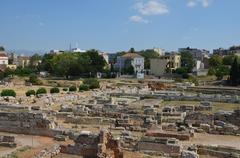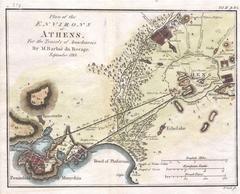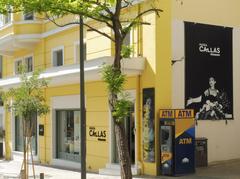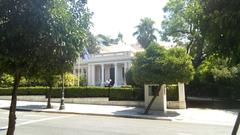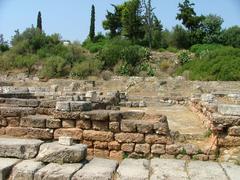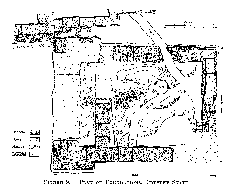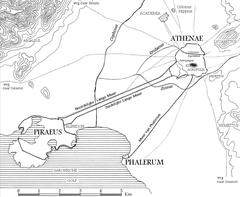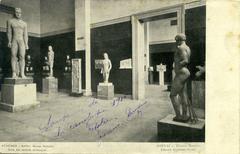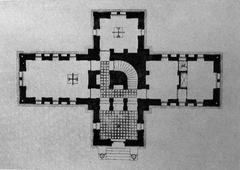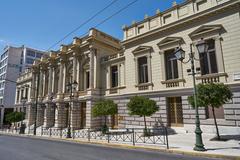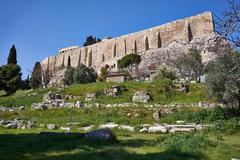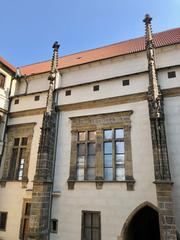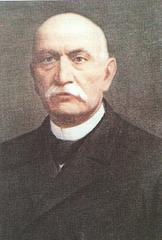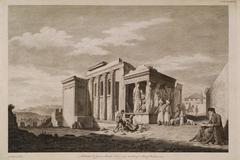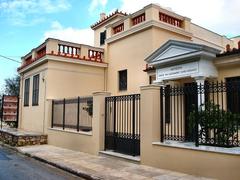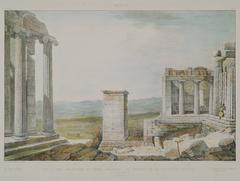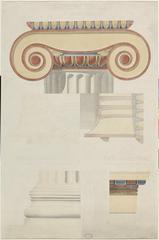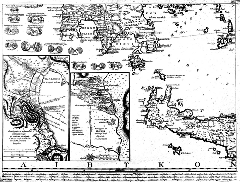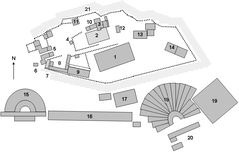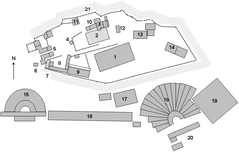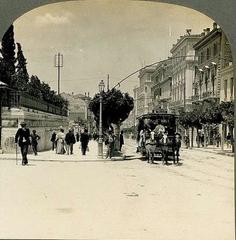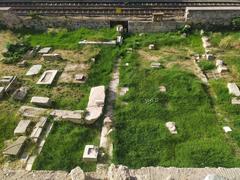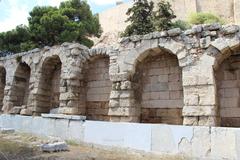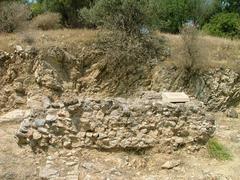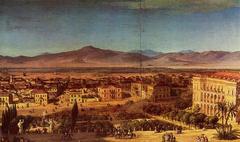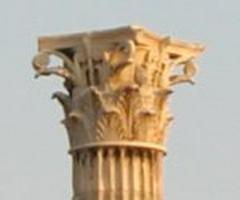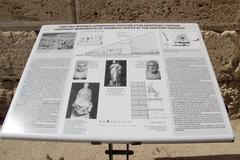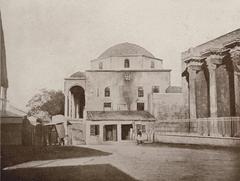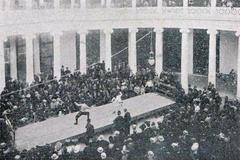Embassy of Germany Athens: Visiting Hours, Tickets, and Historical Significance
Date: 03/07/2025
Introduction
The German Embassy in Athens is a cornerstone of German-Greek diplomatic relations, embodying a long history of collaboration, cultural exchange, and mutual respect. Located in the esteemed Kolonaki district, it is more than a diplomatic mission; its presence reflects Germany’s post-World War II architectural and diplomatic ethos. Though not open to the general public for tours, the embassy’s vicinity to prominent cultural institutions and landmarks makes it a significant stop for those exploring Athens’ rich heritage.
This detailed guide provides all the critical information for visitors—whether you require consular assistance or wish to understand the embassy’s role in the context of Athens’ vibrant cityscape. You will find essential details on visiting hours, access procedures, nearby attractions, and tips to maximize your visit. For the latest updates, refer to the official German Embassy Athens website.
Table of Contents
- Introduction
- Historical Background
- Visiting Hours and Access
- Tickets and Tours
- How to Reach the Embassy
- Nearby Attractions
- Cultural and Educational Significance
- Security and Visitor Tips
- Frequently Asked Questions (FAQs)
- Visual Highlights
- Conclusion and Call to Action
Historical Background
Diplomatic relations between Germany and Greece began in the 19th century, shortly after Greek independence. The German Embassy in Athens has long symbolized the partnership and evolving cooperation between the two nations. Its Kolonaki location is notable for blending modernist German design with local neoclassical influences, reflecting a spirit of reconciliation and forward-looking diplomacy.
Visiting Hours and Access
- Consular Services: Monday to Friday, 9:00 AM – 12:30 PM (by appointment only).
- Public Access: The embassy does not offer general public tours or exhibitions.
- Address: 9 Vasilissis Sophias Avenue, Kolonaki, Athens 10674.
- Contact: +30 210 728 5400
Tickets and Tours
- Tickets: No entry tickets are required; the embassy is not a museum or public venue.
- Guided Tours: Not available due to security regulations.
How to Reach the Embassy
- By Metro: Line 3 (Blue Line), Syntagma or Evangelismos Station; about a 7–10 minute walk.
- By Bus: Numerous lines serve Kolonaki.
- By Car: Limited parking; public transportation is strongly recommended.
Nearby Attractions
Enhance your visit by exploring these nearby cultural highlights:
- Benaki Museum: A showcase of Greek art and history.
- Mount Lycabettus: Offers sweeping views of Athens.
- National Art Gallery: Features renowned European and Greek works.
- Syntagma Square: Political hub with the Hellenic Parliament and the Tomb of the Unknown Soldier.
- National Garden of Athens: A serene escape with lush greenery.
- Acropolis & Plaka District: Iconic ancient ruins and charming historic neighborhoods.
- Kolonaki Square & Shopping Streets: Upscale boutiques, cafés, and a vibrant social scene.
Cultural and Educational Significance
The German Embassy is a hub for cultural diplomacy, supporting initiatives in partnership with the Goethe-Institut Athens and the historic German School of Athens (founded 1896). These collaborations foster language education, cultural events, and exhibitions, strengthening the bond between the two nations.
Security and Visitor Tips
- Identification: Bring a valid ID and appointment confirmation.
- Security: Mandatory screening at the entrance.
- Photography: Prohibited inside the embassy.
- Accessibility: The embassy is wheelchair accessible; contact staff ahead for special needs.
- Travel Tip: Use public transport to avoid parking issues and arrive early for appointments.
Frequently Asked Questions (FAQs)
Q: What are the visiting hours for consular services?
A: Monday to Friday, 9:00 AM – 12:30 PM, by appointment.
Q: Do I need tickets to enter the embassy?
A: No, but appointments are required for consular services.
Q: Is the embassy accessible to people with disabilities?
A: Yes, please notify staff in advance if you need special assistance.
Q: Are guided tours or events available?
A: No public tours; check the embassy or Goethe-Institut websites for cultural event announcements.
Q: What security measures should I expect?
A: Security screening and ID verification are mandatory for all visitors.
Visual Highlights
The embassy’s setting in Kolonaki offers a blend of neoclassical and modern architecture, with nearby parks and squares ideal for photography. Stroll the area to appreciate Athens’ cosmopolitan ambiance and historical depth.
Conclusion and Call to Action
The German Embassy in Athens stands as a testament to enduring German-Greek ties and cultural exchange. While not a tourist site, its historical and diplomatic significance—along with its central location—make it a point of interest for visitors navigating Athens’ cultural tapestry.
Plan your visit today:
- For official information, appointments, and event updates, visit the German Embassy website.
- Enrich your Athens experience by exploring nearby museums and landmarks.
- Download the Audiala app for personalized travel tips, and follow us on social media for the latest updates.
Visiting the Acropolis of Athens: History, Tickets, Hours, and Visitor Information
Introduction
The Acropolis of Athens is one of the world’s most renowned historical sites, symbolizing the artistic and intellectual legacy of ancient Greece. Perched atop a rocky outcrop, it houses iconic structures such as the Parthenon, the Erechtheion, and the Temple of Athena Nike. Its enduring presence reflects the cultural achievements of classical Greece and attracts millions of visitors each year.

Alt text: View of the Parthenon on the Acropolis hill in Athens.
Historical Significance
Built primarily in the 5th century BCE, the Acropolis served as the religious and political heart of ancient Athens. The Parthenon was dedicated to Athena, the city’s patron goddess, while other structures like the Erechtheion and Propylaea highlight the artistic brilliance of the era. The Acropolis has withstood centuries of wars, occupations, and restoration efforts, remaining a powerful symbol of Greek identity.
Visiting Hours
- Summer (April 1 – October 31): 8:00 AM – 8:00 PM
- Winter (November 1 – March 31): 8:00 AM – 5:00 PM
Last entry 30 minutes before closing. Hours may vary on holidays—check official sources before your visit.
Ticket Information
- General Admission: €20 (April–October), €10 (November–March)
- Reduced Admission: €10 (April–October), €5 (November–March) for EU citizens aged 18–25
- Free Admission: Children under 18, EU seniors over 65, students, and on select public holidays
- Combined Ticket: €30 (valid for Acropolis and six additional sites for five days)
Buy tickets online at the official Acropolis Museum Ticketing Website
How to Get There
- Metro: Acropolis Station (Line 2)
- Bus: Lines 230 and 040, among others
- Walking: Easily accessible from Plaka, Monastiraki, and Syntagma squares
Visitor Tips
- Wear comfortable shoes; the terrain can be uneven and slippery.
- Bring sun protection and water, especially in summer.
- Guided tours are available and enrich the experience.
- Photography is permitted (no drones).
- Arrive early or late in the day to avoid crowds.
Accessibility
The Acropolis has an elevator and some ramps for visitors with mobility challenges, though certain areas remain difficult due to the ancient landscape. Contact the Visitor Center for assistance.
Nearby Attractions
- Acropolis Museum: Modern museum at the foot of the hill, displaying site artifacts.
- Plaka District: Historic neighborhood with shops, restaurants, and picturesque alleys.
- Ancient Agora: The civic and commercial center of ancient Athens.
Frequently Asked Questions (FAQ)
Q: Can I purchase tickets online?
A: Yes, purchase via the official website to avoid queues.
Q: Are guided tours available?
A: Yes, in multiple languages from licensed guides.
Q: Is the Acropolis open on public holidays?
A: Generally open except for major holidays like Christmas and New Year’s Day.
Additional Resources
Call to Action
Plan your Acropolis visit today! Secure tickets online, explore Athens’ ancient wonders, and share your experiences with #VisitAcropolis. For more travel guidance, download the Audiala app and stay connected for updates on special events and tours.
Summary: Visiting the German Embassy in Athens
The German Embassy in Athens is a key symbol of German-Greek relations and cultural diplomacy. While it does not function as a public attraction, its presence in Kolonaki places it among the city’s most vibrant neighborhoods, close to major museums, parks, and historical landmarks. Visitors seeking consular services should arrange appointments in advance, prepare necessary documentation, and utilize public transportation for convenience. The embassy’s partnerships with institutions like the Goethe-Institut and the German School of Athens underscore its educational and cultural role.
For a well-rounded Athens experience, combine your embassy visit with nearby attractions. Always consult the official German Embassy Athens website for the latest information.
References
- Visiting the German Embassy in Athens: History, Hours, and Cultural Significance, 2025, (https://griechenland.diplo.de/gr-en)
- Visiting the German Embassy in Athens: Location, Hours, Nearby Attractions & Travel Tips, 2025, (https://athen.diplo.de/gr-en)
- Visiting the Acropolis of Athens: History, Tickets, Hours, and Visitor Information, 2025, (https://www.theacropolismuseum.gr/en)
- Visiting the Acropolis of Athens: Hours, Tickets, History, and Travel Tips, 2025, (https://www.theacropolismuseum.gr/en)
